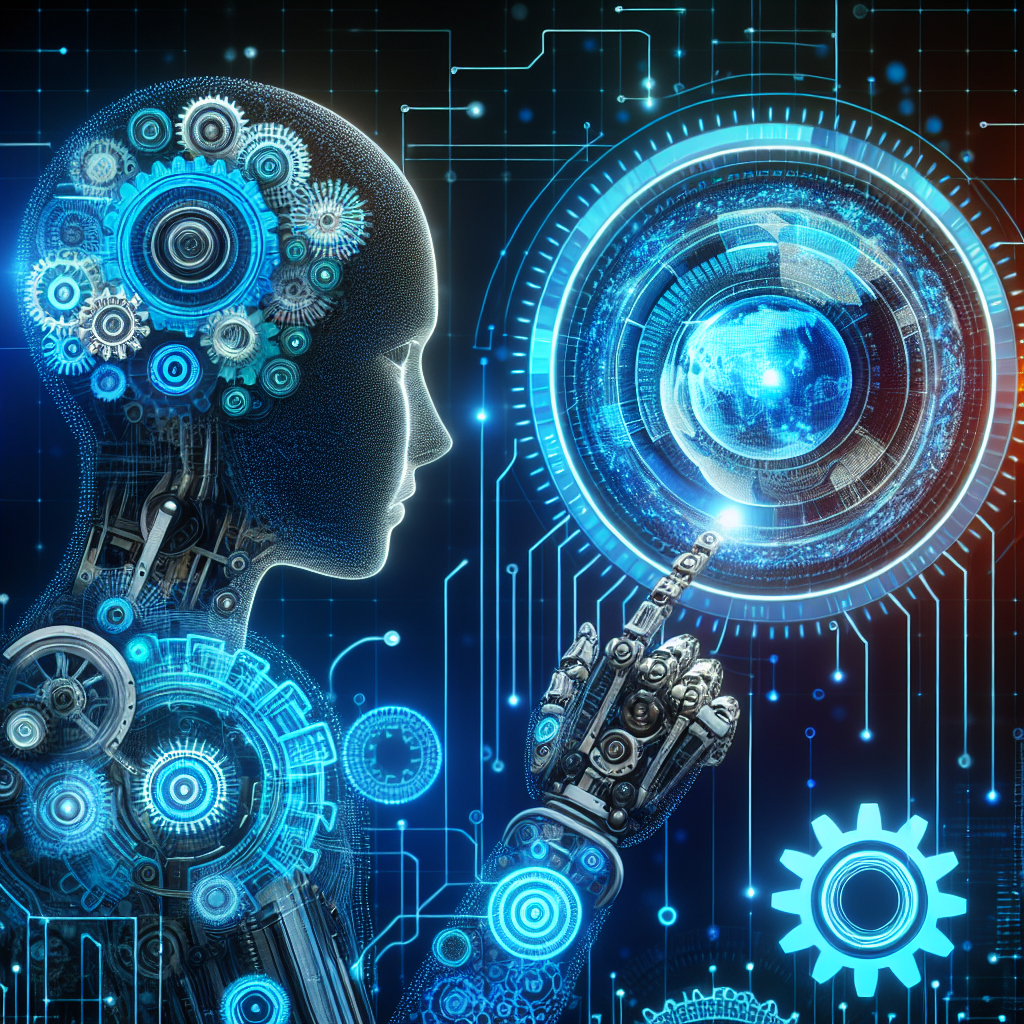AGI: The Next Frontier of Artificial Intelligence
Artificial General Intelligence (AGI) is the next frontier of artificial intelligence, representing the ability of a machine to understand, learn, and apply knowledge in a way that is indistinguishable from human intelligence. While current AI systems excel at specific tasks, such as image recognition or language translation, they lack the general intelligence and adaptability of humans. AGI aims to bridge this gap and create machines that can reason, learn, and solve problems in a way that mirrors human cognition.
AGI has the potential to revolutionize industries, improve efficiency, and solve complex problems that are currently beyond the capabilities of existing AI systems. However, the development of AGI also raises ethical, societal, and existential questions that must be carefully considered. In this article, we will explore the concept of AGI, its potential applications, challenges, and implications for society.
What is AGI?
Artificial General Intelligence (AGI) refers to the ability of a machine to perform any intellectual task that a human can do. This includes reasoning, problem-solving, learning, and understanding natural language. AGI goes beyond narrow AI systems, which are designed to perform specific tasks, such as playing chess or recognizing faces. AGI aims to replicate the broad range of cognitive abilities that humans possess.
The development of AGI is a complex and challenging task, requiring advances in machine learning, natural language processing, robotics, and other fields of AI. Researchers are working to create systems that can learn from experience, generalize knowledge across domains, and adapt to new situations. AGI has the potential to revolutionize industries such as healthcare, finance, transportation, and education, by automating tasks, improving decision-making, and enabling new forms of creativity and innovation.
Applications of AGI
AGI has the potential to transform a wide range of industries and sectors. Some potential applications of AGI include:
– Healthcare: AGI systems could assist doctors in diagnosing diseases, analyzing medical images, and developing personalized treatment plans. AGI could also help to improve patient outcomes by identifying patterns in large datasets and predicting health risks.
– Finance: AGI systems could automate trading strategies, analyze market trends, and optimize investment portfolios. AGI could also help to detect fraud, manage risks, and improve decision-making in financial institutions.
– Transportation: AGI systems could optimize traffic flow, predict accidents, and improve the efficiency of transportation networks. AGI could also enable autonomous vehicles to navigate complex environments and interact with other road users.
– Education: AGI systems could personalize learning experiences, adapt to students’ needs, and provide real-time feedback. AGI could also assist teachers in developing curriculum materials, assessing student performance, and identifying areas for improvement.
Challenges of AGI
While AGI holds great promise, there are several challenges that must be addressed before it can become a reality. Some of the key challenges of AGI include:
– Scalability: Creating AGI systems that are capable of learning and reasoning across a wide range of domains is a significant technical challenge. Researchers must develop algorithms that can scale to handle large amounts of data, complex tasks, and diverse environments.
– Interpretability: AGI systems can be complex and opaque, making it difficult to understand how they arrive at their decisions. Ensuring that AGI systems are transparent, explainable, and accountable is essential for building trust and acceptance.
– Ethical considerations: AGI raises ethical questions related to privacy, bias, fairness, and accountability. Researchers and policymakers must address these issues to ensure that AGI is developed and deployed in a responsible and ethical manner.
– Societal impact: AGI has the potential to disrupt industries, displace jobs, and reshape society. Policymakers must consider the social, economic, and political implications of AGI and develop policies to mitigate potential risks and maximize benefits.
Implications for Society
The development of AGI has the potential to bring about profound changes in society. While AGI promises to improve efficiency, productivity, and innovation, it also raises concerns about job displacement, income inequality, and social cohesion. As AGI systems become more capable and autonomous, they may replace human workers in a wide range of industries, leading to job losses and economic disruption.
To address these challenges, policymakers must consider measures such as retraining programs, universal basic income, and regulation of AI systems. It is essential to ensure that the benefits of AGI are shared equitably and that the risks are managed responsibly. By taking a proactive and collaborative approach, society can harness the potential of AGI to create a better future for all.
FAQs
Q: What is the difference between AGI and artificial narrow intelligence (ANI)?
A: AGI refers to machines that can perform any intellectual task that a human can do, while ANI refers to machines that are designed to perform specific tasks. AGI aims to replicate human-like intelligence, while ANI is limited to narrow domains of expertise.
Q: When will AGI be achieved?
A: The timeline for achieving AGI is uncertain, as it depends on advances in AI research, computational power, and other factors. Some researchers predict that AGI could be achieved within the next few decades, while others believe it is still many years away.
Q: What are the risks of AGI?
A: The risks of AGI include job displacement, ethical concerns, bias, privacy violations, and potential misuse of AI systems. It is essential to address these risks through regulation, oversight, and responsible development practices.
Q: How can society benefit from AGI?
A: AGI has the potential to improve efficiency, productivity, and innovation in a wide range of industries. By automating tasks, optimizing processes, and enabling new forms of creativity, AGI can create new opportunities for growth and prosperity.
In conclusion, AGI represents the next frontier of artificial intelligence, with the potential to revolutionize industries, improve efficiency, and solve complex problems. While the development of AGI poses challenges and risks, it also offers opportunities for society to harness the power of AI for the greater good. By addressing ethical, societal, and technical considerations, we can ensure that AGI is developed and deployed in a responsible and beneficial manner.

